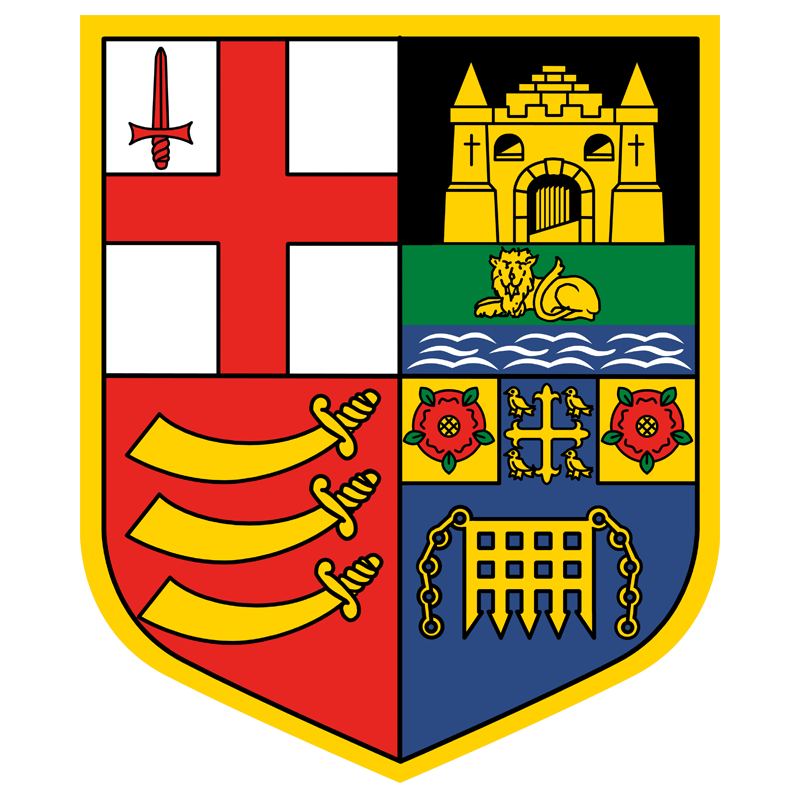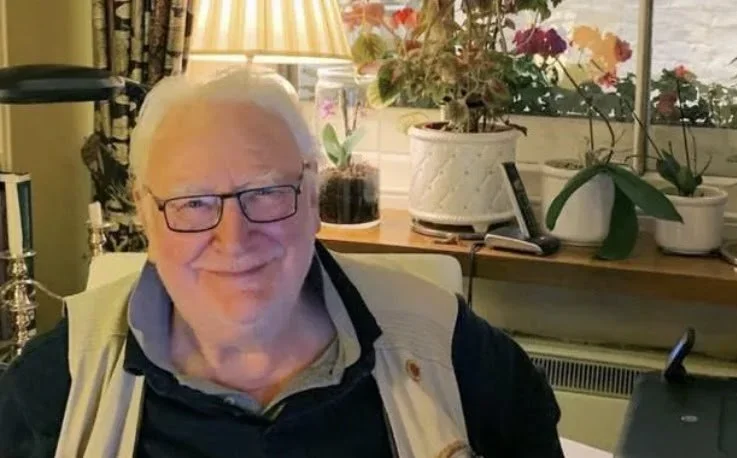We are sorry to report the death on 7th June, at the age of 84, of John Harry Bruce Rew, a longtime member, who was Hon. Treasurer for five years in the early 2000s.
John could not have had a more illustrious family connection with the Club, and seemingly must have had blue and white blood in his veins. Both his father, Charles Rew, and his uncle, Archie Nisbet, were Vice Presidents, and had successful rowing careers before WWII. His father rowed in the GB VIII at the 1924 Paris Olympics, coming 4th (Hugh Dulley’s father, Peter, was as it happens in the same crew).
Archie Nisbet won a silver medal in a M2- (with Terry O’Brien, LRC representing GB in this class) at the 1928 Olympics in Amsterdam and was later awarded an OBE for services to rowing. Chris Dodd’s history of the Club devotes several paragraphs to his father and uncle.
John joined as a cadet member in 1952 and was one of the very few left today who featured in the printed 1956 Centenary programme which included a full list of members. He rowed for Radley College at Henley in the PE Cup in 1958 and for Jesus College, Cambridge, in the Thames Challenge Cup in 1960 (Jesus were beaten by London in the first round). He also rowed for Goldie and it is reckoned that he might have earned a Blue in his final year but for being sent down. He never rowed for London at Henley, but was no mean sculler, one year finishing in the top six in the Scullers’ Head. He had a good pair of lungs, and his booming voice as a supporter could be heard way up the towpath.
Away from the river, John qualified as a chartered accountant and pursued a career in the City. A lively obituary in the 30th June issue of the Daily Telegraph(and on the web) – this is recommended reading - is headed “John Rew, relentless campaigner who helped to secure Lloyd’s Names a £3bn settlement”.
He was persuaded to come and run the Club’s finances in 2001 after the previous treasurer, Maurice Rayner, had fallen ill and had had to step down.
John had a memorably laid back way of reporting at the General Committee’s monthly meetings, but saw the Club successfully through the next five years at a crucial time – (a) the Club’s 150th anniversary celebrations and projects; and (b) overseeing most of the stages of the £890k project, led by Alan Foster – namely, the women’s changing rooms; what is now the Ashton Room at the back over the rear of the upstream boat bays; and a new side entrance for rowers off Spring Passage. The project is summarised in ‘On Finches Field’ published early last year.
John was generous to his friends, and he will be much missed.



